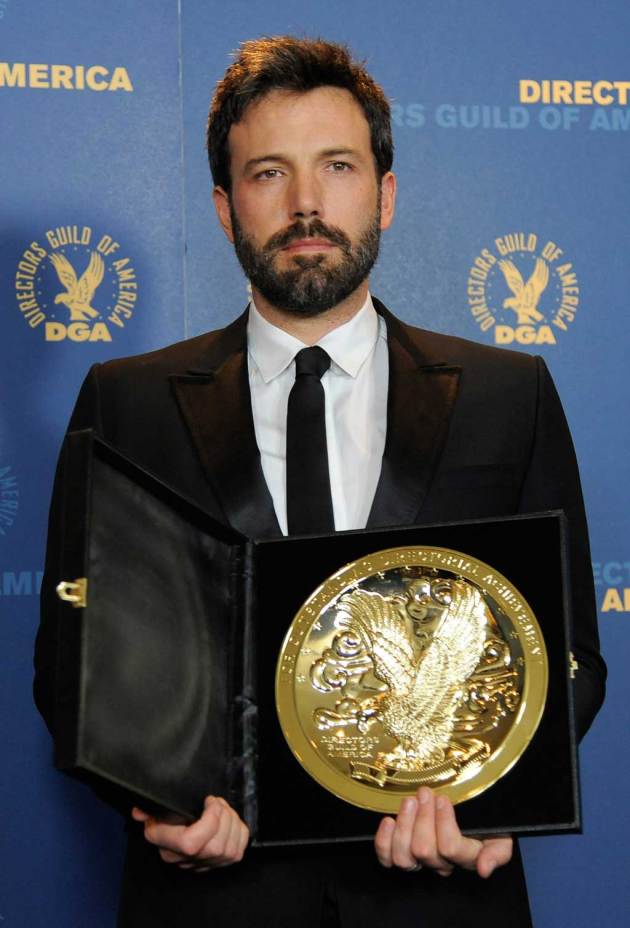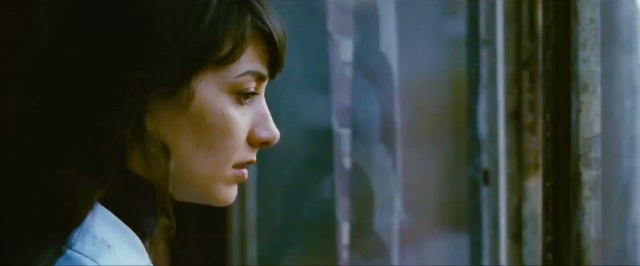 Amir here. There are two days left until the Oscars, but no doubt as to what name is called when the final envelope is opened at the ceremony. Argo has become a juggernaut, steamrolling through the reason with one industry award after another and is now undoubtedly in the driver's seat. As is par for the annual course, in the past few weeks, Affleck’s film has been subjected to more criticism than it probably deserves. A film that was once a successful crowd-pleaser, a surprising box-office sensation, a well-made, old-fashioned thriller, is now being touted as the best of the year by the Academy most of us hold in high regard, so naturally expectations have dramatically skyrocketed.
Amir here. There are two days left until the Oscars, but no doubt as to what name is called when the final envelope is opened at the ceremony. Argo has become a juggernaut, steamrolling through the reason with one industry award after another and is now undoubtedly in the driver's seat. As is par for the annual course, in the past few weeks, Affleck’s film has been subjected to more criticism than it probably deserves. A film that was once a successful crowd-pleaser, a surprising box-office sensation, a well-made, old-fashioned thriller, is now being touted as the best of the year by the Academy most of us hold in high regard, so naturally expectations have dramatically skyrocketed.
Recently I rewatched it, hoping to reconsider my initial opinion of the film and find the spark it’d been missing the first time around. It’s not that I disliked Argo then. Quite the opposite, I really enjoyed it. For one thing, Argo’s depiction of Tehran in the early 80s is, on the surface, dead-on. I have my bones to pick with the characterization of Iranians in the film – particularly during the Bazaar sequence – but as a native of Tehran, I have to admit I got a kick out of watching the geography, the atmosphere and the language down to every banner and chant play out so accurately. All the more impressive when you stop to consider that it wasn’t filmed in Iran at all. [More...]
On top of that, Argo may resort to a countless number of Hollywood conceits to rile us up but there’s no denying that its thrills work. Sure, there is no truth to the police cars chasing that Swiss Air plane on the tarmac; the wait for Chambers to pick up his phone didn’t play out the way it does in the film; Iranian kids never had to solve the puzzle of those shredded pieces of paper; but Argo’s not a documentary and we can forgive it the dramatic licenses.
My personal disappointment with Argo was probably a consequence of my unreasonably high expectations. The hostage crisis is one of the defining moments of the 20th century and I’d hoped for an account that dissected the diplomatic machinations and the political aftermath in more detail than Argo does. Terrio’s script is as politically toothless as it can be. It takes a landmark event and uses as a mere backdrop to a film that essentially boils down to a hide and seek and chase and escape tale. It’s disheartening because so much information about the crisis was classified for so long in America and used for propaganda in Iran. It’s hard not to look at Argo as a missed opportunity.
Of course, it’d be inconsiderate of me to criticize a film for something it’s not. Maybe the filmmakers never intended to make a political film in the first place and that’s fair. A good film doesn’t necessarily need several layers of subtext to succeed. In fact, I’d be disingenuous if I pretended that I value a film’s thematic importance over its artistic merits when films like Drive rank so high among my favorites on an annual basis. But my gripe isn’t directed toward Team Affleck; it’s directed toward the award season narrative, because it’s hard to make a convincing argument that Argo’s aura of political importance didn’t play a role in its dominance on the circuit. But dig beneath the film’s surface and it becomes increasingly difficult to justify the “political” thriller tag. It’s a thriller, surely, but how political is it really?
 Sahar, the only Iranian "character" in Argo
Sahar, the only Iranian "character" in Argo
We all know thrillers aren’t really the Academy’s cup of tea. You can make an argument about The Departed but an indisputable narrative formed around Scorsese that year that made that one unstoppable. Beyond that, policial and crime thrillers are scattered and usually unsuccesful among the nominees. Affleck himself has made two superior films that didn’t catch on as widely as this one did. In a season of mixed signals and unprecedented events along the road, it’s unsurprising that the most enjoyable and agreeable film came out triumphant, but this was also an election year, when politics and inevitably America’s relationship with the Middle East were a prominent talking point. Not just that, there were at least three other films that sparked heated debates in the American political scene. That anyone would hail Argo as a timely addition to the conversation about Iran or as any sort of time capsule for the events of 1980 is baffling to me.
Iran in Affleck’s Argo could well be “the exotic orient” of the fictional Argo, so long as its inhabitants are made to look threatening enough with bearded faces and veiled heads and their language is unfamiliar by the hero who fights against them. The more alien the foreigners appear, the more exciting it will be to escape from them; that’s basically what Argo’s politics comes down to. And in the awards season, consensus always forms around the safest choice. Challenging politics be damned. The Argo plane has taken off and no one can catch it now.
You can follow Amir on twitter at @Amiresque or read his blog here.